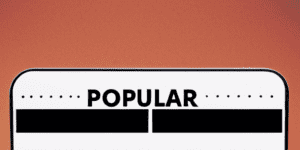Ever felt overwhelmed staring at a
blank screen, unsure where to begin your blogging journey? I’ve been there.
When I started, I spent hours poring over ideas, trying to figure out what
would work. But here’s what I’ve learned: selecting the right blogging niche is
the cornerstone of your success. It determines not only your readership but
also your motivation to keep going.
Let me take you through everything I’ve
learned, so you can start confidently and avoid the pitfalls many of us face
early on.
What Makes a Blog
Niche Profitable?
A profitable niche isn’t just one that
generates income—it’s one that keeps you engaged while meeting the needs of a
substantial audience. Through trial and error, I discovered that the best
niches strike a balance between three key elements:
|
Pillar |
Key Questions |
Example |
|
Market Demand |
Are people searching for this? |
“How to grow succulents indoors” |
|
Monetization Potential |
Are there affiliate products or ads |
Gardening kits, eBooks, or online |
|
Sustainability |
Can you create fresh content |
Seasonal plant care, trending decor |
For example, I once ventured into a
trendy niche without thinking about long-term sustainability. It fizzled out
within a year because the audience moved on, leaving me with no growth
opportunities.
When choosing, think about niches that
solve problems or inspire audiences consistently. A blog about “mindfulness
techniques,” for instance, offers room for evergreen content and timeless
value.
Popular vs. Untapped
Niches: What’s Right for You?
Popular vs. Untapped
Niches: What’s Right for You?
In my early blogging days, I struggled
to choose between trendy topics and unique ideas. Should I compete in a popular
space or carve out my niche in an emerging field? Here’s what I discovered:
|
Factor |
Popular Niches |
Untapped Niches |
|
Competition |
High; requires significant effort to |
Medium to low; easier to build |
|
Audience Size |
Large but divided across many |
Smaller, highly engaged communities. |
|
Monetization |
Proven strategies and tools |
Creative, exploratory opportunities. |
Popular niches like “personal finance”
may seem crowded, but with a specific angle like “budget tips for freelancers,”
you can stand out. Meanwhile, untapped niches, like “eco-friendly tech hacks,”
give you a head start on growing trends.
Success doesn’t come from simply
choosing the easiest path but from finding a niche where you can make a
meaningful impact.
How to Ensure Your
Niche Has Longevity
One of the biggest mistakes I made
early on was underestimating how quickly some niches lose relevance. To avoid
this, focus on niches that can evolve over time while staying relevant.
Tools That Helped Me
Assess Longevity
- Google Trends:
Showed me whether interest in my topic was rising or falling. - BuzzSumo: Helped me
identify viral content within my chosen niche. - Industry
Reports:
Provided insights into upcoming trends and shifts.
For example, while researching “travel
blogging,” I noticed spikes around budget travel post-pandemic. That insight
helped me adapt my content strategy to focus on topics like “safe solo travel”
and “affordable domestic trips.”
When you evaluate longevity, ask
yourself: Will people still care about this niche five years from now? Can I
adapt to changing trends within this space?
Mastering Market
Research
Understanding your audience is the
backbone of successful blogging. I made the mistake of guessing what people
wanted early on, which cost me time and effort. Now, I rely on data to guide my
decisions.
Methods I Use for
Market Research
|
Method |
Tool/Platform |
Purpose |
|
Keyword Research |
Identify search terms and competition |
|
|
Social Media Insights |
Understand questions and discussions |
|
|
Competitor Analysis |
Study successful blogs and their |
By combining these tools, I was able to
uncover what topics had high demand with moderate competition. For example,
while researching “healthy cooking,” I found an underserved audience looking
for recipes under 20 minutes—a gap I could fill.
Take the time to listen to your
audience and analyze the data. The more you understand their needs, the better
your content will perform.
Monetization: The
Realities and Rewards
Many new bloggers underestimate the
variety of ways to make money from their blogs. When I started, I relied
heavily on ads, but soon realized the potential in diversifying income streams.
My Monetization
Strategies
|
Method |
What Worked for Bloggers |
Potential Earnings |
|
Affiliate Marketing |
Partnered with Amazon for product |
$50–$500/month based on traffic. |
|
Digital Products |
Launched an eBook on travel packing |
Passive income, scalable as traffic |
|
Sponsored Content |
Collaborated with small brands for |
$100–$1,000/post depending on |
When choosing your niche, consider what
monetization methods align best. For example, a tech blog could earn through
affiliate programs, while a lifestyle blog might do well with sponsored posts
and digital products like templates.
Balancing Passion
with Profit
Your enthusiasm for a niche will keep
you motivated during slow periods, but profitability ensures your efforts are
rewarded. When I started, I underestimated how much time I’d need to sustain
consistent content. Choosing a niche you care about makes the process enjoyable
rather than overwhelming.
How I Found My
Balance
1. I listed topics I
genuinely enjoyed discussing.
2. I evaluated each one
for monetization and growth potential.
3. I wrote a few trial
posts to see what felt natural and fun to create.
Remember, blogging is a long-term
commitment. Choose a niche that feels like an extension of who you are, not
just a trendy topic to chase.
Testing Your Niche
Before Committing
One of the smartest moves I made was
testing my niche with small steps before fully committing. This saved me from
wasting time and resources on ideas that didn’t resonate with my audience.
Steps I Took to
Validate My Niche
1. Pilot Content: I wrote 5 posts in
my chosen niche and shared them on social media.
2. Feedback Collection: Used Google Forms
and comments to gather insights on what people liked.
3. Traffic Analysis: Installed Google
Analytics to measure post performance.
When one of my posts about
“budget-friendly travel hacks” gained traction, it confirmed that I was on the
right track. Start small and refine as you go—it’s easier to pivot early than
after months of effort.
Future-Proofing Your
Blog
Staying ahead in the blogging world
means embracing change. Over the years, I’ve learned to adapt my content
strategy based on evolving trends and reader preferences.
Strategies for
Staying Relevant
|
Approach |
Examples |
Why It Matters |
|
Monitor Trends |
Use Google Trends to track audience |
Stay ahead of competitors. |
|
Expand Topics |
Add related niches like |
Attract new audiences while retaining |
|
Diversify Platforms |
Launch a YouTube channel or podcast. |
Reach audiences in different formats. |
Your blog’s future depends on your
willingness to innovate. Keep learning, stay flexible, and embrace new
opportunities.
Wrapping It Up
Starting your blogging journey can feel
overwhelming, but taking it one step at a time makes all the difference.
Remember, your niche is the foundation—choose wisely, but don’t overthink it.
Action trumps perfection every time.
If you’ve done your research, tested
your ideas, and aligned your passion with market demand, you’re already ahead
of most beginners.
The key now is to start.
Your audience is waiting, and there’s
no better time than now to begin building your blogging legacy.








